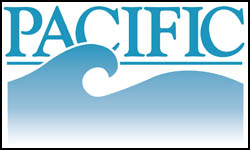As we approach the end of the 2024/25 tax year you should review the pension contributions made since 6 April 2024 and consider whether or not you should make a further one-off personal pension contribution before 5 April 2025. Making a further pension contribution this tax year could save tax and could utilise any carried-forward relief from 2021/22 which will be lost if not used by 5 April 2025.
Tax relief is available on personal pension contributions up to 100% of relevant earnings or £3,600 (whichever is the highest), though this figure may be restricted by the annual allowance and any available carried-forward relief.
The standard annual allowance for 2024/25 is £60,000 plus any unused allowance brought forward from any of the previous three tax years.
Your annual allowance may be lower than £60,000 (known as the tapered annual allowance) if your taxable income for the year exceeds £200,000 or if you are only entitled to the Money Purchase Annual Allowance of £10,000 because you have previously flexibly accessed your pension savings.
We will be happy to discuss with you the amount that you are considering putting into your pension to ensure that you do so tax efficiently. Please note:
- Personal pension contributions are made net of basic rate tax, therefore if you wish to utilise £10,000 of your available pension relief you will need to make a net contribution to your pension scheme for £8,000. Your pension scheme will then reclaim the £2,000 tax credit from HM Revenue & Customs on your behalf, adding this to your pension savings to give you a gross contribution of £10,000.
- If you are a higher rate taxpayer, you will be entitled to claim higher rate tax relief on the pension contribution which will reduce your tax liability for the year. An £8,000 net contribution could reduce your tax liability by £2,000 – meaning that your gross contribution of £10,000 has cost you £6,000.
- If your income is more than £100,000, making a pension contribution before the end of the tax year could enable you to keep your personal allowance by reducing your taxable income to less than £100,000.
- In addition to the personal allowance taper, a pension contribution would reduce your adjusted net income for the High Income Child Benefit Charge and access to Tax-Free Childcare.
- A pension contribution would reduce your taxable income and lower your student loan repayments.
Should your total pension contributions (including any employer contributions made for you) exceed your annual allowance plus any available brought forward relief from earlier years you will incur an Annual Allowance Excess Charge. If the charge is more than £2,000, and this has arisen because your pension contributions exceeded £60,000, you can ask your pension provider to pay the charge to HM Revenue & Customs for you out of your pension pot. If a charge has arisen for 2024/25, you would normally have until 31 July 2026 to notify the scheme.
If, however, the annual allowance excess charge has arisen because your pension contributions did not exceed £60,000 but, instead, exceeded the tapered annual allowance or the money purchase annual allowance you may still ask the pension scheme to pay the charge for you voluntarily out of the pension pot, but they do not have to do this and the scheme may have its own deadline for you to request this. The deadline could be as soon as 31 July 2025, therefore, you should also consider ensuring that your 2024/25 Self Assessment Tax Return is prepared soon after 5 April 2025 so that the annual allowance excess charge can be calculated leaving you enough time to ask the scheme to pay this for you. If you delay and miss the scheme’s deadline, this will increase your tax payment due on 31 January 2026.
As a final point, if you make a personal pension contribution that does not exceed the annual allowance but does exceed 100% of your relevant earnings for the year, this will not result in a tax charge but you will need to inform your pension provider as soon as possible as they will need to repay the excess income tax relief claimed from HM Revenue & Customs and may also need to refund the excess net contribution to you. You should try and avoid this situation from arising.
Should you wish to discuss this further, then please contact a member of the tax team.
If you do not have a pension advisor and if Pacific Financial Planning does not already advise you but you would like advice, then please do not hesitate to contact SRigby@pacificgroup.co.uk
